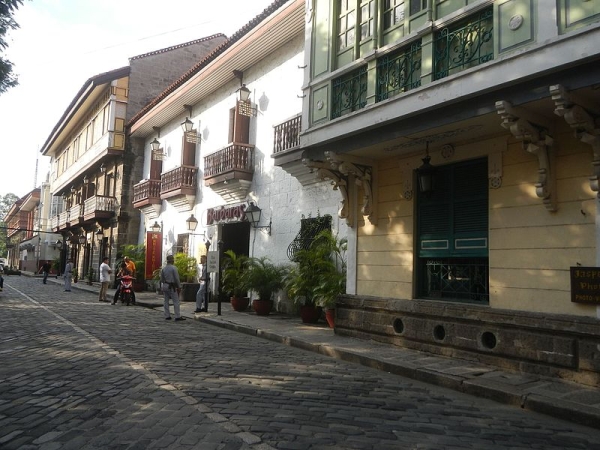Week 19, 2020
MONDAY, 4 MAY 2020
“We don’t have time for all this,” Bran Stark apparently says in the eighth season of Game of Thrones. “The Night King has your dragon. He’s one of them now. The Wall has fallen. The dead march south.”
Okay.
Since I was in high school, I thought studying Philosophy at university level was the pinnacle of profundity. “Isn’t that why people have been attending universities for 1,000 years?” I thought. “To study Truth and Meaning and Purpose of Existence!” That people go to university to learn how to be accountants, or engineers or dentists is simply not right. After all, these are things you can learn from being in the service of an accountant or engineer or dentist for seven years, as they did in the Middle Ages.
Seeing that I had already considered myself serious about things like Truth and Purpose of Existence in my late teens, I naturally wanted to study Philosophy, or at least Theology. It quickly became apparent that the only people who could study Philosophy were students with parents rich enough that they did not need to take subjects at university that could secure them a career.
After university I continued my own education. History of every direction the wind blows, language, geography, economics, even enough biology to understand how cells work. But Philosophy remained mostly mysterious. Over the years, a handful of Philosophy books have piled up in my bookshelf. And once or twice I managed to understand enough of something to incorporate it into my own writing (not sure if I completely understood the concepts, but it came in handy nonetheless).
One of many philosophers about whom you should never attempt an intelligent conversation with me is Georg Wilhelm Friedrich Hegel (1770-1831). That’s where the quote from Game of Thrones comes in. Attempting to discuss Hegel’s philosophy is like talking to me about the popular TV series. To date, I’ve probably only seen one minute of one episode. What I know is picked up from what other people excitedly share with each other within hearing distance. If the conversation is about Game of Thrones, I’m the one with a mouth full of teeth. Same with Star Trek, Star Wars, Dungeons and Dragons, or Lord of the Rings.
To be able to participate intelligently in a conversation about Hegel, you need to speak Hegelian fluently. As with Star Trek and other cult TV series or films, you’ll be caught out within a minute if you try to join the conversation without being one of the initiates. For example, on Hegel’s Wikipedia page you read: “Hegel’s principal achievement was his development of a distinctive articulation of idealism, sometimes termed absolute idealism, in which the dualisms of, for instance, mind and nature and subject and object are overcome.”
Say what?
The description continues as follows: “Of special importance is his concept of spirit (Geist, sometimes also translated as ‘mind’) as the historical manifestation of the logical concept – and the ‘sublation’ (Aufhebung, integration without elimination or reduction) – of seemingly contradictory or opposing factors: examples include the apparent opposition between necessity and freedom and between immanence and transcendence. Hegel has been seen in the twentieth century as the originator of the thesis, antithesis, synthesis triad.”
Now look, I have no reason to doubt that people who regard Hegel as an influential thinker really understand what he was talking about. If I could ever go so far as to decipher Hegel, it would indeed be a favourite pastime to expose false Hegel fans. I see myself at a barbecue, for instance, with a drink in one hand and a fork full of potato salad in the other asking a pretentious soul: “So which one of Phänomenologie des Geistes or Wissenschaft der Logik do you consider Hegel’s best early work?”
And if I did my homework properly, I wouldn’t drop the potato salad on my shoe if someone then stepped closer and asked me, “Do you agree with Maurice Merleau-Ponty who wrote that the philosophies of Marx and Nietzsche, phenomenology, German existentialism, and psychoanalysis all had their beginnings in Hegel?”
TUESDAY, 5 MAY 2020
Debate is one of the cornerstones of a free, democratic society. On the one end of the spectrum is fairly organised competition between two opponents, or between two teams, with rules, conventions, and even a referee ringing a bell. On the other hand, there is Twitter or Facebook, conversations around the barbecue fire or in a bar that ends with at least one person in the swimming pool or in jail, and discussions between friends and family that make the peacemakers in the kitchen or living room very nervous.
As much as I like a nice hot argument, I have to admit that the Wild West aspect of discussing politics or religion has been annoying me for some years. I can formulate a perfectly logical argument, but because the other person’s voice is of a higher pitch than mine, their illogical clatter is more audible than my logical mumble. And if my opponent also manages to throw in a light-hearted comment to win a little favour with the audience, I can just as well throw in the towel.
With politics these days it is almost worse than with religion. People have sorted themselves into camps, and eternal damnation will befall you if you don’t use the right vocabulary on the right topic – and no fence sitters are allowed! Want to ask more questions about climate change? There’s no time, Denier! The world is going to Hell because of people like you who don’t want to submit to Scientific Consensus! Want to suggest that Trump may perhaps not literally be Hitler? Don’t you know you are empowering the Orange Evil Incarnate with your middle-of-the-road rational approach?!
And on the topic of Trump – mention issues like Russia and Putin, or illegal immigration, or policies against China or the European Union or NATO, or the Kavanaugh saga, or the story of corruption in Ukraine, or the legality of the FBI’s actions towards Trump and the people who worked for him, and you enter a universe where there is apparently no documentary evidence of conspiracies against Trump or wrongdoing on the other side, no email or text message records, no single standard that applies to everyone, no facts. All that matters is what you believe, and with how much emotion you express your beliefs. If you believe X with enough emotion, it must be true. It simply has to be true. The opposite simply cannot be true. Our side simply cannot be wrong. The mere possibility is too painful …
What became of rules? What became of, “Let’s look at this like rational, calm adults”? What happened to “Oh, I didn’t know about that. If so, then I guess I’m wrong”?
When did politics become fundamentalist religion?
All of this almost makes one want to say: Don’t talk politics with me because you don’t accept the rules of the game.
“Rules of the game?” you might ask.
Yes, the rules that say, if I can prove beyond reasonable doubt with dates and references and logical deductions that X=X, you are not allowed to turn away and say it doesn’t matter.
One more thing: Just because I’m not singing in anyone’s choir, or just because I’m sceptical and I ask questions doesn’t mean you can hang a sign around my neck that says “ABC-XYZ Denier” or more repugnant labels. I ask again: When did this virus of religious fundamentalism infect so many people who used to be reasonable?
Last point: I’ve picked up another trend in the last few months. Someone will make a good point. Any reasonable person would listen to it and either agree or say something like, “You make a good point, but I still differ from you for the following reasons …” The trend now is to indicate that the good, reasonable point that one person made is a so-called “talking point” of the Evil Incarnate Eternal Enemy (formerly known as political opponents). Because it has been identified as a “talking point” of Green, Red can reject it outright, or because it is a “favourite talking point” of Pumpkin Eaters, there’s no need for Carrot Eaters to even consider it.
Hello? Is there anything left in your head from when you were a reasonable, thinking person? Just because Green or Red or Pumpkin or Carrot regularly makes a point in discussions on TV doesn’t make it an invalid point!
On any hot topic of the day, whether person or issue, I can see that I could be wrong. If you lay facts on the table that contradict what I know, with proper references, and you use logical reasoning, I would lay down my proverbial sword and admit you are right, and I am wrong. If you have to be honest with yourself, can you?
WEDNESDAY, 6 MAY 2020
I have a basic idea of the history of the Philippines: the original inhabitants of the islands, the Spanish takeover in the sixteenth century, the eventual conquest of the country by the US – although they saw it as the liberation of the land from Spanish rule, Japan’s temporary takeover during World War II, and the iron fist rule of Ferdinand Marcos that ended in 1986.
I’ve never had a great desire to visit the capital, Manila. The impression I get from TV is that it is a noisy, busy, dirty place. Just about everyone I know who has been to the Philippines either goes directly to the islands or they travel through Manila on their way somewhere else.
Pleasant was my surprise then when I read yesterday about the “Intramuros”, an 0.67 square kilometre historic area in the heart of modern Manila. During the Spanish colonial administration, this Walled City was the centre of political power, as well as the centre of religion, education and the economy. Development in the city in the early twentieth century had already taken a toll. Then, in February and March 1945, the Japanese took their last defensive positions, including in the historically important Walled City, to try and stop the American advance.
As might be expected, the Battle of Manila destroyed the city, and most of the historic buildings: “Filipinos lost an irreplaceable cultural and historical treasure in the resulting carnage and devastation of Manila, remembered today as a national tragedy. Countless government buildings, universities and colleges, convents, monasteries and churches, and their accompanying treasures dating to the founding of the city, were ruined. The cultural patrimony (including art, literature, and especially architecture) of the Orient’s first truly international melting pot – the confluence of Spanish, American and Asian cultures – was eviscerated. Manila, once touted as the ‘Pearl of the Orient’ and famed as a living monument to the meeting of Asian and European cultures, was virtually wiped out.”



THURSDAY, 7 MAY 2020
A few weeks ago I caught a song in a playlist of a Bulgarian DJ named Ahmet Kilic. I recognised it as a Metallica number, but only identified it today: “Fade to Black” from the band’s second studio album, Ride the Lightning, released in 1984.
The song – for lack of a better phrase – spoke to me. It wasn’t until I identified the title that I properly considered the lyrics:
Life, it seems, will fade away
Drifting further every day
Getting lost within myself
Nothing matters, no one else
I have lost the will to live
Simply nothing more to give
There is nothing more for me
Need the end to set me free
A little dark, but understandable given the singer’s background and emotions when he wrote the lyrics.
Anyway, the track seems to have become a staple at Metallica’s concerts, but here’s the studio version:
FRIDAY, 8 MAY 2020
I have finally ready a draft document, tentatively titled, “Covid-19: A Reading List”.
This is not the result of careful research. This is simply a series of articles I have read from March 2020, which I have bookmarked if I considered the information or opinion expressed within worth revisiting.
As everyone should know by now, the crisis that people in most countries of the world are currently experiencing is of a medical nature, with growing political and economic consequences. The articles on this list address all three aspects of the crisis.
Given that the crisis is apparently far from over, this list should expand over the coming weeks and months (hopefully not years).
Finally, because I am a South African living in Taiwan, there are some articles dealing with the situation specifically in these two countries.
Again, the link: https://www.brandsmit.com/covid-19-a-reading-list/
______________________